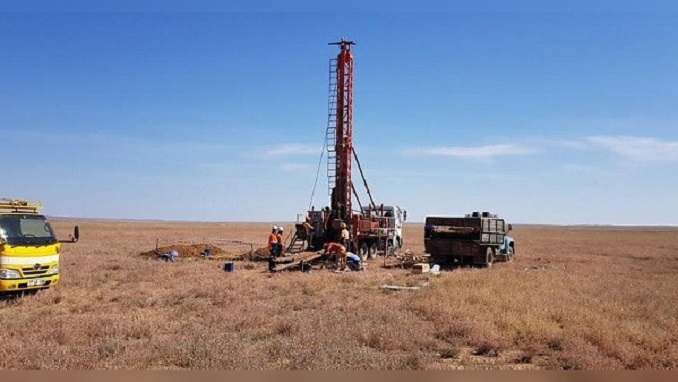Mongolia’s first lithium brine explorer and developer ION Energy Ltd. Announced it has resumed water well drilling at the Urgakh Naran lithium project in Dorngovi Province in Mongolia to complete the UNWH-03 program.
ION Energy Ltd., which aims to specialize in lithium brine exploration and development, told investors it has so far drilled three water wells at the project for a total of 682 meters of drilling, to return lithium values.
Whilst UNWH-03 is currently at 82 meters and is continuing, Drill holes UNWH-01 and UNWH-02 were each drilled to a depth of 300 meters, the company’s release informs, noting that the company has previously reported strong results from the lithological holes.
Toronto-based company is advancing the over 29,000-hectare Urgakh Naran lithium brine license in Mongolia. ION Energy’s flagship lithium brine project, the 81,000-hectare Baavhai Uul, represents the largest and first lithium brine exploration license award in Mongolia.
Urgakh Naran project’s chief executive Ali Haji said that although ION’s team had anticipated not being able to return to the site and resume this phase of their drilling program later in March, they were able to advance the inferred resource calculations at Urgakh Naran.
The company expects to start the sampling work in the field in the coming weeks since it’s already in possession of the equipment necessary for bailer sampling, pump testing, and hydrogeological testing.
Previously in December, ION Energy Ltd. told investors it was extremely pleased with the drilling results from the exploration diamond core drilling program at its Urgakh Naran lithium project in Mongolia that was recently completed.
According to the company’s project results, there is a lithium-pregnant Urgakh Naran basin, which extends over 17,000 hectares, with significant potential for in-situ brine at relatively shallow depths.
Haji said at the time that the basin is showing the potential to host significant brine accumulations in close proximity to the national electric grid and critical development infrastructure.



